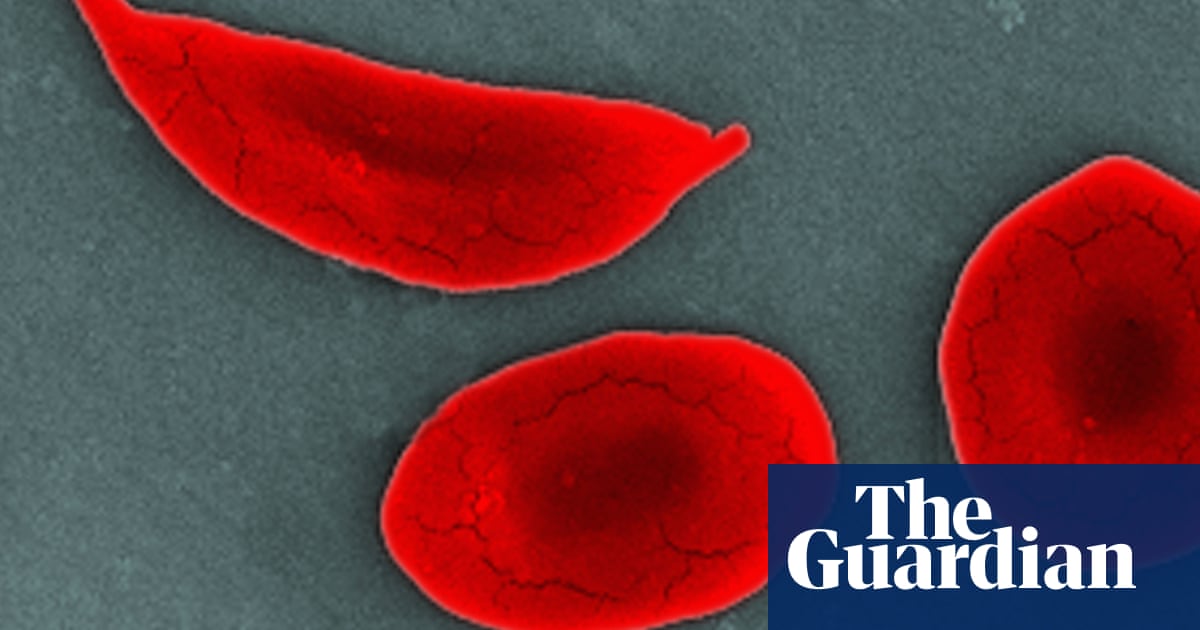People living with sickle cell disease face substandard care as its treatment significantly lags behind advances relating to other genetic disorders such as cystic fibrosis, a report has found.
The study, commissioned by the NHS Race andHealthObservatory and carried out by researchers at Imperial College London, analysed various measures of care for sickle cell disease between 2010 and 2024, including clinical trials, approved drugs and reviews of existing studies.
The findings indicated that sickle cell care across the UK does not have parity with other genetic disorders, such as cystic fibrosis, with there being only 0.5 specialist nurses per 100 patients for sickle cell, compared with two per 100 for cystic fibrosis.
The report also found that there is 2.5 times more research funding for cystic fibrosis than for sickle cell, meaning the former has more treatment options and breakthrough drugs than the latter.
Evidence of substandard care for people with sickle cell was also found, with 20% of babies with the condition not being seen by a specialist by three months of age, despite theNHSscreening programme guidelines that 90% of babies should be seen by this milestone.
Prof Habib Naqvi, the chief executive of the observatory, said sickle cell care “significantly lags behind” that for other rare genetic conditions.
He added: “These inequalities are stark and, despite being a common genetic disorder, sickle cell has endured years of inadequate attention and investment that has resulted in the experiences we then see play out for people living with the condition.
“We do highlight the stark inequalities that exist for people with sickle cell in comparison with other rare conditions, but we also offer evidence-based solutions for meaningful change.”
The report also found that these disparities in care for people with sickle cell disease were not due to a lack of need, given that hospital admissions for sickle cell rose by 42% between 2013 and 2022.
These disparities exist despite the fact sickle cell disease is just as prevalent as other rare genetic disorders. The disorder primarily affects people from an African-Caribbean background.
In England, about 17,000 people are living with the disease, an inherited blood disorder, with 250 new cases a year.Sickle cell diseasechanges the shape of blood cells into crescents, hindering blood flow. People with the condition experience severe painful episodes, which can require hospital admission.
Approximately 11,000 people in the UK have cystic fibrosis, a condition which causes breathing and digestive problems due to mucus. The median age of death for sickle cell is 47. For cystic fibrosis, it is 48.
John James, the chief executive of the Sickle Cell Society, said the landmark report “makes it impossible for anyone to ignore the existence of deep inequalities faced by people with sickle cell – in healthcare, research funding and wider recognition”.
He added that the findings were sobering. “It is unimaginable that these disparities have, beyond all reason, continued for so long.
“However, by analysing how other long-term conditions are supported and resourced, it is clear to see the tangible difference that investment in healthcare makes.”
Prof Bola Owolabi, NHS England’s director for the National Healthcare Inequalities Improvement Programme, said: “It is unacceptable that people with sickle cell disease face worse outcomes than those with other conditions, which is why the NHS England has stepped up with its sickle cell and thalassemia quality improvement project.
“Patient care has also been boosted by introduction of digital care plans so they don’t need to repeat their stories to healthcare staff, and we have launched a campaign to boost awareness of key signs and symptoms of the disorder called Can You Tell It’s Sickle Cell?”
